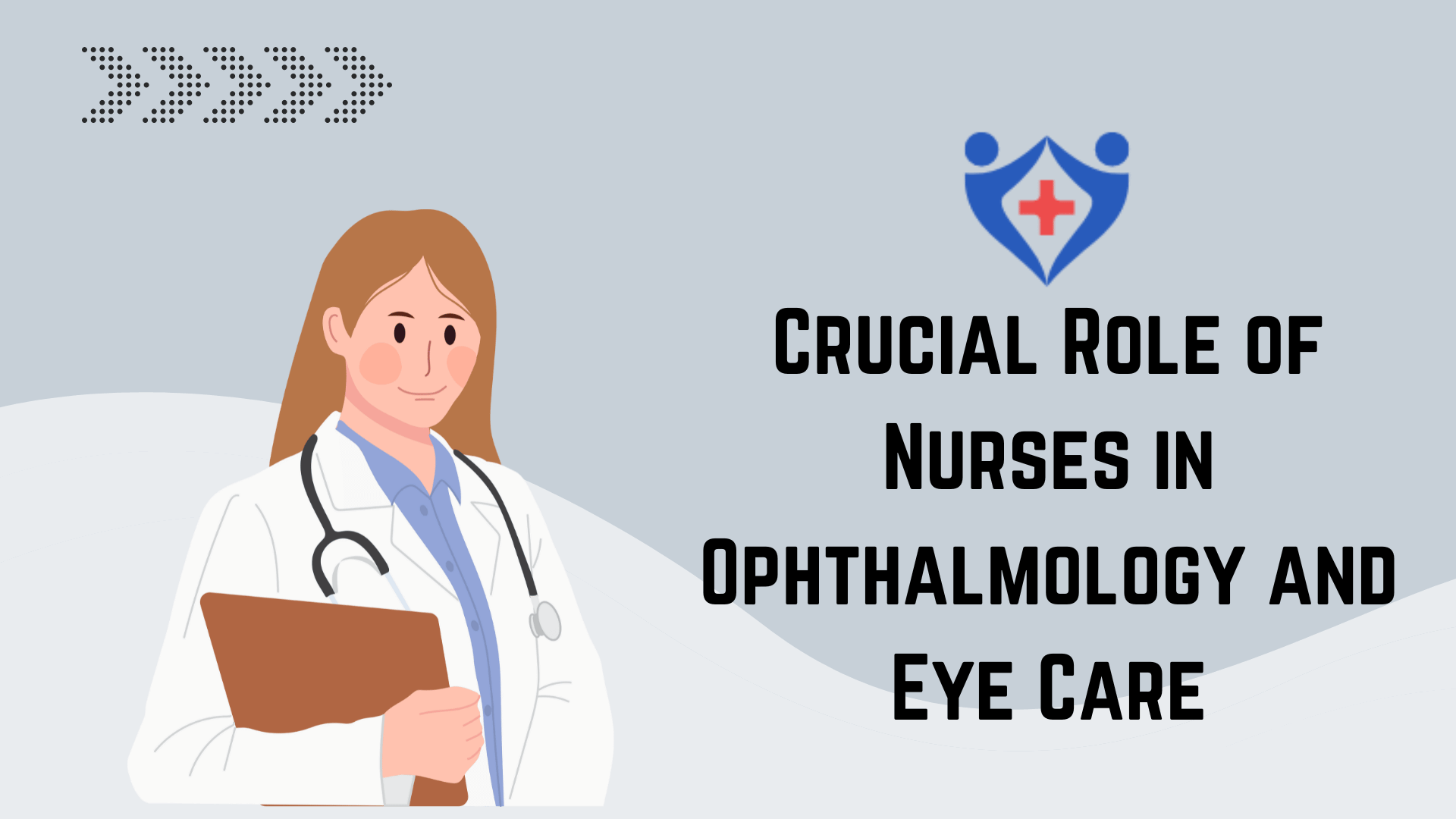Nursing plays a vital role in various medical specialties, including ophthalmology and eye care. As frontline healthcare providers, nurses contribute significantly to patient care, education, and advocacy in this specialized field. In this comprehensive guide, we delve into the multifaceted role of nurses in ophthalmology, exploring their responsibilities, skills, and impact on patient outcomes.
Understanding Ophthalmology Nursing:
Role and Scope of Practice Nurses specializing in ophthalmology possess a unique skill set tailored to eye care. They work alongside ophthalmologists and other healthcare professionals to deliver comprehensive services to patients with various eye conditions. From routine eye exams to intricate surgical procedures, ophthalmology nurses play a crucial role in the continuum of eye care.
Key Responsibilities The responsibilities of ophthalmic nurses encompass a wide range of tasks, including:
- Conducting preoperative assessments and patient education for eye surgeries.
- Assisting ophthalmologists during procedures such as cataract surgery, LASIK, and retinal surgeries.
- Administering medications, including eye drops and ointments, and monitoring their effects.
- Providing postoperative care and follow-up to ensure optimal recovery and outcomes.
- Educating patients on eye health, disease prevention, and treatment modalities.
- Collaborating with other healthcare professionals to coordinate holistic care plans for patients with complex eye conditions.
Skills and Competencies Required:
Clinical Proficiency Ophthalmology nurses must possess advanced clinical skills specific to eye care. These include proficiency in performing specialized assessments such as visual acuity testing, intraocular pressure measurement, and ocular imaging techniques. Additionally, they must be adept at recognizing and managing ophthalmic emergencies promptly and effectively.
Communication and Patient Education Effective communication is paramount in ophthalmology nursing, as it facilitates patient understanding and compliance with treatment plans. Nurses must communicate complex eye-related information in a clear and accessible manner, addressing patients’ concerns and empowering them to participate in their care effectively.
Critical Thinking and Problem-Solving In the dynamic environment of ophthalmology, nurses encounter diverse patient presentations and clinical scenarios. The ability to think critically, analyze information, and make sound clinical judgments is essential for delivering safe and effective care. Nurses must adapt to evolving situations, troubleshoot issues, and collaborate with colleagues to optimize patient outcomes.
The Impact of Ophthalmic Nursing on Patient Care:
Nursing Advocacy Nurses serve as advocates for patients in ophthalmology, ensuring their voices are heard and their needs are addressed. Advocacy encompasses various aspects, including safeguarding patients’ rights, promoting access to quality eye care, and advocating for evidence-based practices that prioritize patient safety and well-being.
Patient-Centered Care Ophthalmology nurses prioritize patient-centered care, tailoring interventions to meet individuals’ unique needs and preferences. By fostering therapeutic relationships built on trust and empathy, nurses enhance patients’ experiences and contribute to positive treatment outcomes.
Enhanced Clinical Outcomes Research indicates that the involvement of nurses in ophthalmology care correlates with improved clinical outcomes and patient satisfaction. Nurses’ contributions, ranging from comprehensive preoperative assessments to diligent postoperative monitoring, contribute to reduced complication rates and enhanced recovery periods.
The Future of Ophthalmic Nursing:
Advancements in Technology The field of ophthalmology is continually evolving with advancements in technology, diagnostics, and treatment modalities. Nurses must stay abreast of these developments, undergoing specialized training and continuing education to deliver cutting-edge care effectively.
Interprofessional Collaboration Collaboration among healthcare professionals is integral to the delivery of holistic eye care. Ophthalmology nurses collaborate with ophthalmologists, optometrists, technicians, and other team members to optimize patient outcomes through multidisciplinary approaches.
Conclusion:
In conclusion, nurses play a pivotal role in ophthalmology and eye care, contributing to every aspect of patient management from diagnosis to treatment and beyond. Their clinical expertise, compassion, and advocacy are indispensable in ensuring optimal outcomes for individuals with diverse eye-related conditions. As the field of ophthalmic nursing continues to evolve, nurses remain at the forefront, driving innovation, promoting patient-centered care, and making a profound impact on the lives of those they serve.

